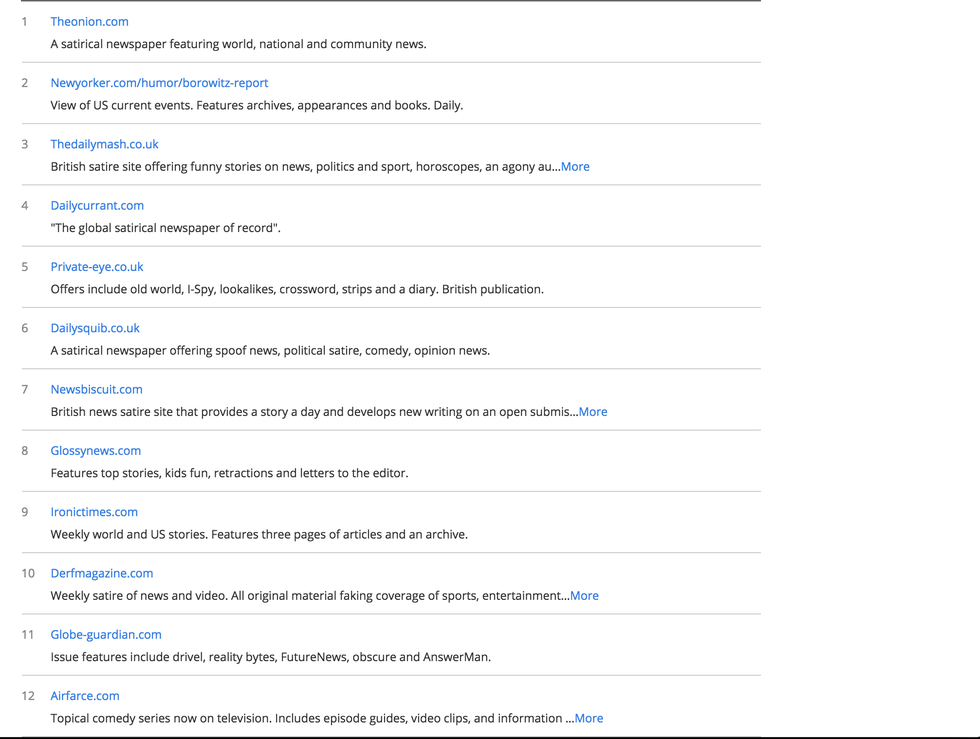Ah, the Internet. It's a beautiful thing. An information superhighway designed for the public. A great way to learn, research, explore and connect. But for every intelligent person using the web for good, there's someone who doesn't quite understand the Internet's true capabilities. While it's great for spreading news, it's also great for spreading lies. The worst part about that? When people don't know that's what they're doing.
Enter: Satirical websites. Don't know what a satire is? Let me inform you. According to Merriam-Webster, a satire (noun sat·ire \ˈsa-ˌtī(-ə)r\) is:
1) a literary work holding up human vices and follies to ridicule or scorn.
2) trenchant wit, irony, or sarcasm used to expose and discredit vice or folly.
Satirical websites are rampant on the Internet recently, and boy, they can be funny! Whether or not you agree that the material is comical or not, one thing that isn't debatable is that the stories published on these sites are false.
Granted with everything going on in the world right now (see Donald Trump vs. Pope Francis), it can be difficult to distinguish what's true and what's false. But part of being a responsible Internet user is doing your research! For your consideration, below you'll find a list, via Alexa, of the most frequented satire sites online, as of February 20, 2016.
Think of how embarrassing it is when you post a huge rant about the process of finding a Supreme Court justice or how science is wasting it's time manipulating coyotes only to realize you're getting all hyped up over a fake story. You can instantly earn more Internet cred, and probably the respect of your colleagues, simply by checking the factuality of a story before you post it.
A great way to easily tell if what you're reading is legitimate or not is usually by the domain name. I promise you, nothing from Clickhole will ever be true. Some great places to get breaking news and stories are The New York Times, Google News, CNN or The Huffington Post.
There's nothing worse than scrolling online and finding someone you thought was intelligent and informed of worldly events seriously sharing something that's clearly meant to be a joke. Satire sites are great, light reads. They can even be great conversation starters when used properly. If you realize the irony or humor behind the posts, then someone will likely discuss the actual nature of the topic with you. But when you un-ironically post that you believe Charles Koch ordered a sniper to fire a warning shot next to Marco Rubio on the debate stage, I guarantee someone, somewhere, is rolling their eyes.
Take a look at Literally Unbelievable, a site dedicated to sharing the idiocy that is people arguing over untrue stories! Don't be like them.
Trust me. Do yourself a favor. Spice up your newsfeed and timeline with the occasional satirical piece, but only when you understand what they actually mean. Sharing something that isn't true and spreading false belief isn't good for anyone. Now go forth: share witty and accurate content!






















